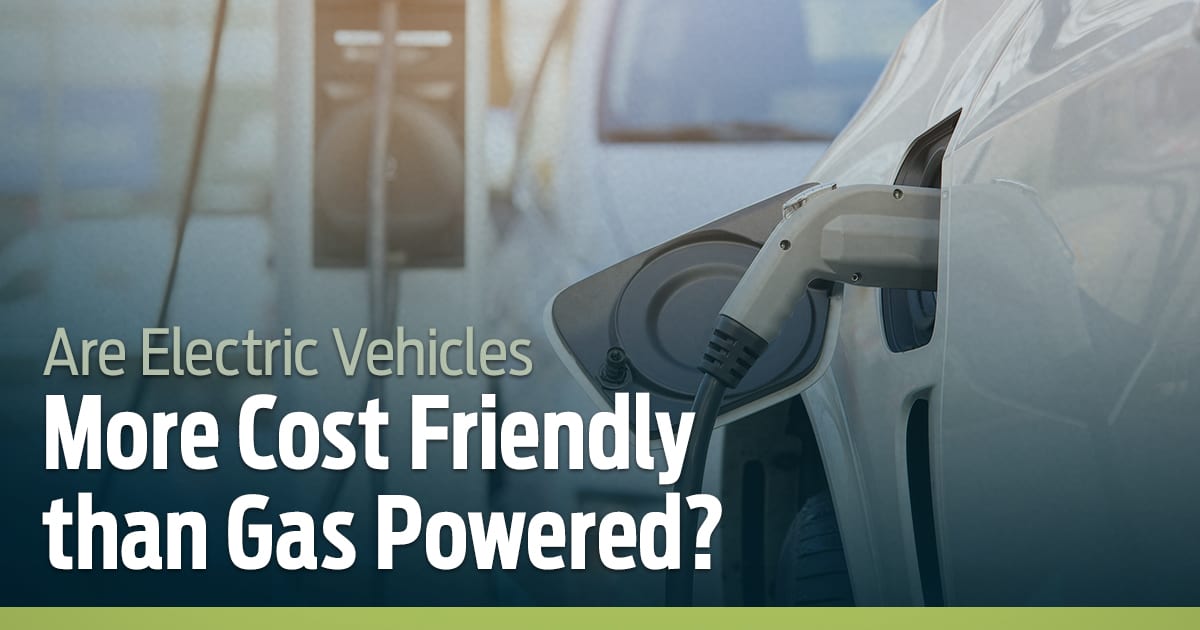
Electric Vehicles vs Gas Powered: How Do They Compare?
February 24, 2022
Share:
With the rise of electric vehicles, both in the dealerships and on the roads, many Canadians are contemplating the potential benefits of purchasing an electric vehicle and swapping out their old gas-powered one. There’s no doubting the fact that electric vehicles are a great way to reduce your CO2 emissions, seeing as the average Canadian currently produces roughly around 14.2 tonnes of CO2 – with the bulk of an individual’s carbon footprint coming from transportation. Housing and food are also prominent factors, but that’s a whole other can of worms.
So, is now the time to be considering switching to an electric vehicle? How does an electric vehicle compare to a gas-powered one? There’s more to be considered than just the environmental impact. In this blog post, Excalibur Insurance will detail the benefits of electric vehicles, the drawbacks, and how they compare to your trusty gas-powered car.
What are the different types of electric vehicles?
First, electric vehicles are still somewhat new to the market. Currently, there are only three different types of electric vehicles available. There are battery-electric vehicles (BEVs) which are powered by electricity solely, then there’s plug-in hybrid electric vehicles (PHEVs) which operate with a hybrid of electricity and gas. These need to be recharged via a plug-in. Finally, there’s hybrid electric vehicles (HEVs), which mostly use gas but have electric components.
Some examples of BEVs include:
- Tesla Model S and X.
- Volkswagen e-Golf.
- Honda Clarity.
Some examples of PHEVs include:
- Toyota Prius Plug-in.
- Chevy Volt.
- Chrysler Pacifica Hybrid.
And, last but not least, some examples of HEVs include:
- Toyota Prius Hybrid.
- Toyota Camry Hybrid.
- Honda Civic Hybrid.
What are some of the benefits of electric vehicles?
Upfront, electric cars are more expense. That’s a no-brainer. They’re hot on the market and they’re relatively new, plus there’s the status implications with owning an electric vehicle. However, as these vehicles gain popularity and become more commonplace, the upfront cost is starting to go down. Note that price will vary depending on where you live, the brand, and the type of vehicle.
After the fact, electric vehicles tend to have lower maintenance costs. With gas-powered vehicles, you’ll have to take into consideration changing the transmission fluid, engine oil, and coolant regularly. Electric vehicles aren’t so advanced that they won’t need regular maintenance, like structural repair, insurance, brake and tire changes though.
Take, for example, the current national average to fill up a gas-powered tank. It might take between $60-$100 to fill up a tank, depending on if you have a smaller car or a larger car. You might fill up once a week. On the other hand, the cost for a single kilowatt of electricity is roughly around $0.15 per hour, so the average electric vehicle may only cost you around $7 for a full charge. That’s a huge difference.
In terms of variety, the gas-powered vehicle wins. There’s only so many purely electrical vehicles available on the market today, but they’re quickly gaining popularity so it’s expected that there will be many more options in the next few decades.
Why shouldn’t you buy an electric vehicle?
Electric vehicles aren’t perfect. Some of the drawbacks include:
- They can’t travel as far on a single charge.
- They take longer to refuel (up to 8 hours for some models.)
- They’re more expensive upfront.
Electric cars are great for drivers who want to reduce their carbon emissions, overall fuel costs, and enjoy luxury vehicles, but with any good thing comes drawbacks. It’s a bigger investment. Ultimately, it’s your decision what you want, but it’s worth taking the time to go over your options.
As an alternative, you could always consider a hybrid. If you aren’t fully on team electric vehicle but you want something flashier, many manufacturers offer hybrid versions of popular vehicles. Hybrids use traditional internal combustion engines in addition to electric motors. In many hybrids, batteries recharge as you drive. It uses its electric motor to power you along at lower speeds. At higher speeds, the car is powered by gasoline.
Cost-wise, hybrids are similar to gas-powered. Plug-ins are still a bit more pricey, but less so than full electric vehicles. You may also qualify for government rebates with a hybrid. Hybrids also offer higher fuel efficiency than gas-powered vehicles and they produce less emissions, albeit not zero.
So, if you don’t want to miss out on the trend of swapping to electric vehicles, consider hybrid. There’s a lot of pros without so many drawbacks as going purely electric.
How does a gas-powered vehicle compare to an electric one?
When it comes down to it, electric vehicles have lower maintenance costs and ongoing expenses than gas-powered ones, but they’re still more expensive upfront. Some insurance companies may offer discounts for if you drive a hybrid or an electric vehicle, but this isn’t always the case. In terms of range, electric vehicles might be able to go around 320 to 355km on a single charge, but gas-powered vehicles can drive up to 1,500km on a full tank. It’s daunting to have to consider charging up every day, especially if you’re a busy person who does a lot of commuting – or even just a parent with a lot of obligations shuttling kids off to their various activities. Finally, it’s worth considering that while most electric vehicle owners will charge at home, public charging stations aren’t nearly as popular as gas stations. That’s something that might take a few years to gain traction.
For the average family home, a gas-powered vehicle is still the go-to. It’s just more accessible, less costly upfront, more options, and you aren’t required to plug in daily to charge up.
The reality is that the market for electric cars is bound to increase in the next few decades, but it’s not at a point where everyone should be considering swapping out their trusty family gas-powered car for a sleeker electric alternative. Ideally, these cars will be much cheaper in the years to come. The tide is turning, but we’ve got a few years to wait first.






